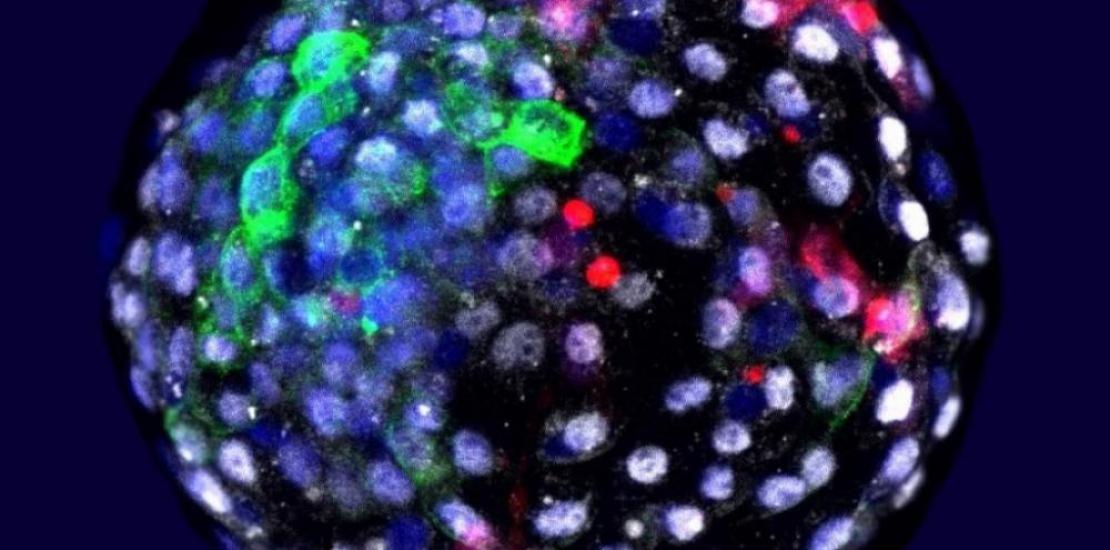A UCAM research project, Nature's image of the year
The prestigious international scientific journal has selected the image captured under the microscope of a macaque embryo with pluripotent (reprogrammed) human cells, generated and maintained in the laboratory for 19 days, as one of the "most fascinating" images of the year 2021, the result of research led by Dr. Juan Carlos Izpisua. The experiment, which was published in the scientific community in April in the journal Science, provided valuable information to advance the research, promoted and financed by UCAM, whose objective is to grow human organs in pigs in order to transplant them into people with severe illnesses.
In June this year, the weekly US magazine TIME already considered the growth of human organs in animals, under the direction of Juan Carlos Izpisua, as one of the 10 most important health research projects of the year throughout the world. And previously, after the first results were published, it recognised the professor of Developmental Biology at UCAM and professor at the Salk Institute in California as one of the 50 most renowned scientists in the world in the field of health.
The World Health Organisation estimates that there are 130,000 transplants a year in the world, less than 10% of those needed, so these new organs would prevent tens of thousands of patients from dying each year on waiting lists.
"The best science images of 2021", selected by Nature's editorial and art teams, correspond to major events and natural phenomena that occurred on the planet during 2021, phenomena discovered by the scientific community along with the most relevant research.




